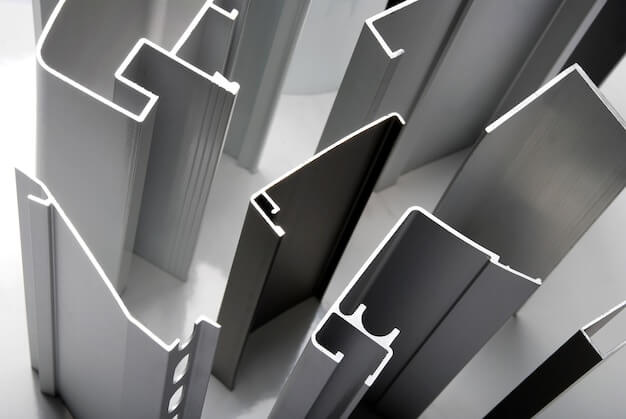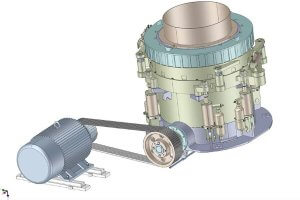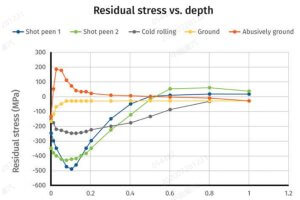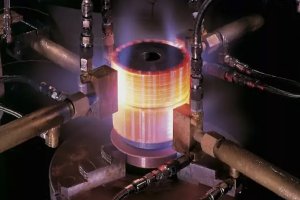Inconel and Monel Alloys: An Introduction
The realm of advanced CNC applications presents the challenge of choosing suitable alloys, with Inconel and Monel standing as key contenders. Predominantly composed of nickel, chromium, and iron, Inconel is renowned for its high-strength properties, excellent corrosion resistance and ability to withstand extreme temperatures, making it an ideal choice for power plant applications and undersea exploration. On the other hand, containing significant amounts of copper and nickel, Monel alloy possesses a unique set of characteristics such as exceptional corrosion resistance especially in saltwater environments, good weldability, and considerable strength. It finds common usage in marine engineering components, chemical processing equipment and oil extraction operations.
Understanding Advanced CNC Applications
CNC machining, standing for Computer Numerical Control machining, is a manufacturing process where pre-programmed computer software dictates the movement of factory tools and machinery. This essentially allows for 3D cutting tasks to be achieved with a single set of prompts.
In advanced CNC applications, alloys play a pivotal role. Alloys are metallic substances composed of two or more elements. They are used due to their desirable properties like greater strength, corrosion resistance, and lighter weight compared to pure metals.
The precise interaction between an alloy and the CNC machine significantly affects the outcome of the final product. In this regard, we focus on two specific types of alloys: Inconel and Monel.
Inconel, primarily made up of nickel and chromium, offers notable heat, pressure capacity, and oxidation resistance, making it an ideal choice in aerospace applications.
Monel, constructed mainly from nickel and copper, stands out in terms of excellent durability and corrosion resistance – factors that make it prevalent in marine and chemical plants
.
While both these alloys hold significant value in CNC machining, choosing between them depends on each unique application’s requirements.
Detailed Analysis: The Properties of Inconel
When analyzing the properties of Inconel, it’s essential to consider its unique characteristics:
- Inconel exhibits exceptional resistance to corrosion and oxidation, making it suitable for high-temperature and corrosive environments.
- It offers high strength and excellent mechanical properties, allowing for the production of durable and reliable components for advanced CNC applications.
- The material’s superior performance in extreme conditions makes it a preferred choice for critical aerospace and industrial applications.
Attributes of Monel for Advanced CNC Applications
The alloy known as Monel offers a unique blend of characteristics that make it an attractive choice for advanced CNC applications. These primary traits include impressive weldability and considerable strength even at subzero temperatures. The excellent weldability of Monel allows for the formation of seamless joints, improving both aesthetics and structural integrity.
In contrast to several other alloys, Monel maintains its robustness under notably low-temperature conditions making it advantageous in industries such as aerospace where these conditions are prevalent. Furthermore, this material shows exceptional resistance against corrosion and acid attacks. Such resistance deems Monel highly valuable in chemical processing industries where corrosive fluids are commonplace.
- Weldability: Monel alloys can be easily welded together to form strong bonds which is crucial in manufacturing processes.
- Low-Temperature Strength: Unlike some materials that lose their tensile strength in freezing conditions, Monel remains resilient at extremely cold temperatures.
- Corrosion Resistance: The composition of Monel provides superior protection against corrosion, making it suitable for extreme environments or structures prone to rusting.
An industry-based example illustrating the utility of Monel would be its employment in constructing cryogenic storage tanks that need to withstand harsh weather conditions while maintaining internal temperature stability. This way, Monel not only meets the challenge but proves itself as a go-to-option when durability and performance in extreme settings are required.
Comparative Analysis of Inconel and Monel in CNC Applications
In the sphere of advanced Computer Numerical Control (CNC) applications, two alloys have risen to prominence: Inconel and Monel. They are invariably evaluated side by side due to their particular properties which lend differential robustness within a typical CNC environment. Here’s an analysis based on multiple factors like durability and machinability.
- Durability: Inconel tends to outperform with its remarkable resistance to extreme heat as well as pressure making it ideal for high-temperature environments common in CNC operations. However, Monel also demonstrates tenacity but does not stand up quite as well under intense heat ($\Delta$The numbers-
- Machinability: The Machining process is more efficient with Monel due to its softer composition, whereas harder alloy such as Inconel poses challenges related to tool wear and increased machining time.
Summing up, while both alloys exhibit reliable performance credentials, Inconel scores higher than Monel when operation demands include resilience towards elevated temperatures. Conversely, if ease of manipulation through CNC process dictates priority, then Monel eases ahead.
Metallurgical Perspectives: Expert Opinions
In the realm of advanced CNC applications, metallurgical perspectives reveal a mix of opinions about the optimal use of Inconel and Monel alloys. According to several reputable metallurgists and material science experts:
- Inconel tends to shine in high-temperature settings due to its ability to retain strength at elevated temperatures. This makes it an excellent choice for parts that must endure intense heat.
- Monel on the other hand, is known for its superior corrosion resistance, especially against flowing seawater and caustic substances. Thus, it finds primary usage in marine environments and chemical processing industries.
Their unique characteristics make both alloys invaluable in their respective fields; however, the choice between them ultimately boils down to the specific environmental conditions they would be subjected to and the physical demands of the application involved.
Real-World Examples: Inconel vs Monel in Advanced CNC Applications
In the realm of advanced CNC applications, real-world scenarios provide substantial insights into how different alloys stand up to certain conditions. For instance, consider power generation industries where high heat and corrosive environments are common. Here, Inconel tends to outshine Monel due to its impressive resistance against oxidation, even under extreme temperatures.
- Application: Turbine blades in gas turbines or jet engines.
- Component & Function: Material’s capacity for heat tolerance plays a critical role; hence, Inconel is chosen for its excellent thermal stability.
- Application: Seawater valves and pump shafts in marine applications.
- Component & Function: Corrosion resistance is key; Therefore, Monel with its outstanding corrosion resistance to saltwater comes as a more reliable choice.
These examples underscore that while both Inconel and Monel have remarkable properties tied to their successful usage, it’s the specific environmental conditions they’ll be operating within that determine which alloy will prove superior.
Other Articles You Might Enjoy
- Inconel vs. Monel for CNC Machining: Which Nickel Alloy Reigns Supreme?
Introduction to Nickel Alloys in CNC Machining Computer Numerical Control (CNC) machining, a pivotal manufacturing process, uses pre-programmed software to dictate the movement of factory machinery and tools. The efficiency…
- Inconel vs. Monel for CNC Machining: A Comprehensive Material Comparison
CNC Machining and Material Importance in Manufacturing Computer Numerical Control (CNC) machining is a manufacturing process that leverages computers to control machine tools including lathes, mills and grinders among others.…
- Applications and Advantages of Bronze CNC Machining
1. Introduction: The Enduring Allure of Bronze in CNC Machining In this opening section, we explore the timeless appeal of bronze as a material for CNC machining. From its rich…









